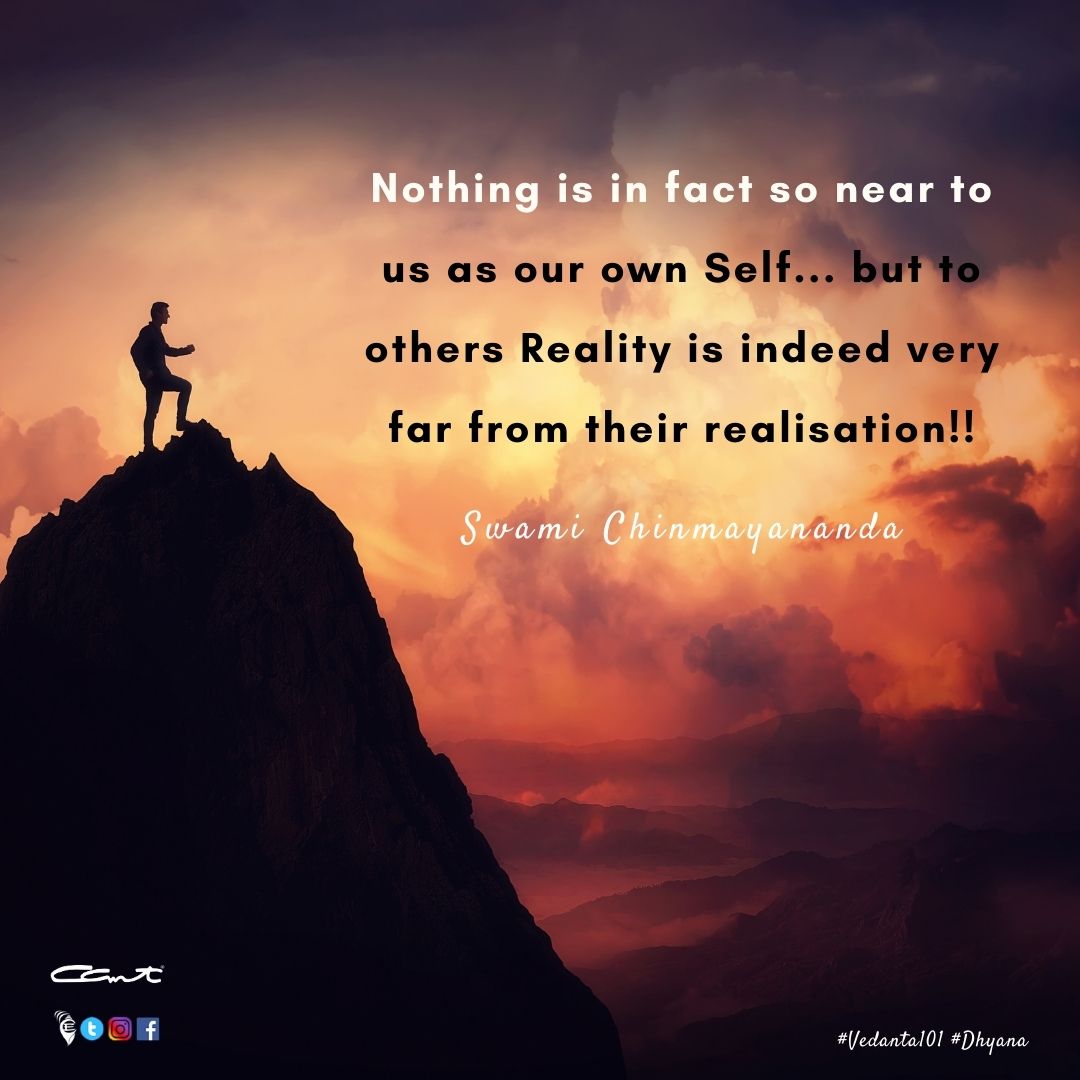The Process of Yoga : 8. Swami Krishnananda.
----------------------------------------------------
Wednesday, January 13, 2021. 08:20. AM.
Chapter 1: The Spirit of Life -8..
--------------------------------------------
But what sort of relationship is there between ourselves and others? This relationship among persons and things in life is what we mean by life, because for us life is experience. Life is identical with what we know as experience. Whatever I experience is life for me. “Oh, what a life!” When I make a complaint like that, I mean that the experiences I had are not satisfactory. So my life is my experience. -our life is your experience. Life is experience in its essence.
-----------------------------
As relationships seem to be what we mean by life, it is necessary to know what sort of relationships we have – or rather, that we seem to have – among ourselves. We can have two sorts of relationships. One is a scientific relationship, and another is an ethical relationship. When we have a very pleasurable ethical relationship among ourselves, we say, “Life is satisfactory. It is good. It is quite okay.” If we think that life is satisfying, it means the ethical relationships are in harmony with what we would like to have for ourselves as our personal experiences. But other than this, there are relationships among the truth or the essentiality behind persons and things. Ethical relationships are not necessarily scientific relationships, because the ethics of life do not always go into the depths of things. The ethics and the morality of life change from time to time in accordance with the existing conditions at the given moment or time, but the scientific relationships among things cannot change. For example, the relationship of the Earth to the Sun is a scientific relationship. It is not an ethical or moral relationship. Though the planet Earth has some sort of relationship with the solar orb, or the Sun, this relationship is essential to the constitution of the Sun and to the constitution of the Earth, and it has no relevance to moral considerations or ethical concepts. This is to give one among the many instances of what a scientific relationship can be. But the moral relationship is what we are familiar with in human society – the etiquette, the demeanour, the conduct that we exhibit in our practical lives so that there may be a harmonious relationship among ourselves – though in our essentialities, we may differ.
-------------------------
For example, political relationships may essentially be in conflict with one another, but may be practically in harmony with one another, so that there may not be wars every day. That wars are not taking place every day does not mean that there is a harmonious relationship among nations. There is a practical harmony, but an essential discord can be there at the bottom of this apparent harmony. In human society, a similar relationship can prevail – even in families, let alone in wider circles of the society. In a small house people may dislike one another in their heart of hearts for reasons of their own, but somehow they can dine at the same table every day, and even smile and shake hands and enquire, ”How do you do?” while inwardly disliking one another. This is social harmony with a disease of inward scientific discord.
--------------------------
We are not merely concerned with ethical or social etiquette in our attempts at understanding what life is. We are concerned with the fundamental essence of life itself, the scientific basis of existence. The laws of the planets – the planetary motion, for example – will not listen to our moral standards or etiquettes of society. If we ask Mother Earth, “Dear Mother, please withhold your force of gravitation for a few minutes until my child safely climbs down from the tree,” she is not going to listen to us. “It may be your child or it may be an emperor, I don’t care. My law of gravitation will work. He will break his leg if he falls,” she says. Scientific laws do not care for etiquette or ethical standards of human society; and life, taken in its wholeness, is a scientific principle. Therefore, we should not be satisfied with a smiling complaisance with the notion that we have understood it because we have wealth to boot, and we are apparently living a life of social approbation and public votes. This will not help us.
------------------------
Scientific principles govern the world, transcending human morals and ethics. And human ethics and morality assume a meaning and significance only when they are in conformity with the scientific laws existing and operating in the world. We cannot have our own morality and ethics every day, changing from time to time. They have to be in harmony with the existing scientific principles of the cosmos; and then our morality will succeed, and we will be successful in life. But if that conflicts with scientific principles, we may be always smiling, but will be sorry in our hearts.
--------------------
Hence, we have to be a little serious from now onwards, if we have not already been serious earlier. We should not take life to be a mere joke or a kind of hobby which is at our command and beck and call. Life is a science by itself. And science is impersonal in its operation. It has no friends and enemies. Scientific laws are equal everywhere, uniformly operating whether in the east or the west, whether in the north or the south, whether on the top or on the bottom. They make no distinction. So, when we understand life, when we try to educate ourselves in the principles of life, we are undergoing a process of education in the highest of sciences conceivable. What can be more serious than a study of science?
--------------------------
Thus, we have paved the ground, as it were, for training the mind for receiving a higher education, a higher knowledge for the highest purpose of life – to be fulfilled, if possible, in this span of life itself so that we shall never once again live unhappily and sorrowfully, as we have been living up to this time. We will not mistake things for what they are not. We will judge things from their own point of view, from the point of view of what they really are, rather than take appearances for reality and live a life of sorrow or samsara. Samsara is a life of suffering, of tension, of grief in our hearts. Samsara may be a show of satisfaction and pleasure outside, but it is essentially a life of grief inside. This is what we mean by samsara. It is not that we are crying every moment. We do not see people crying and sobbing every day; yet inwardly they are all unhappy, though they are not wiping tears outside. Therefore, samsara can be an outward show of satisfaction and beauty, but inwardly it is bitterness, thorns and suffering. This thorny, tense situation that is inwardly gnawing into our vitals has to be averted by a knowledge of the scientific principles of life, which alone can be called real knowledge – a little outline of which I shall try to give in the few days to come.
End.
===========================================





Comments